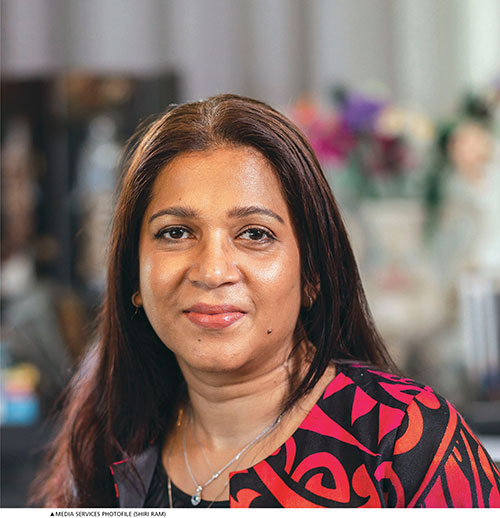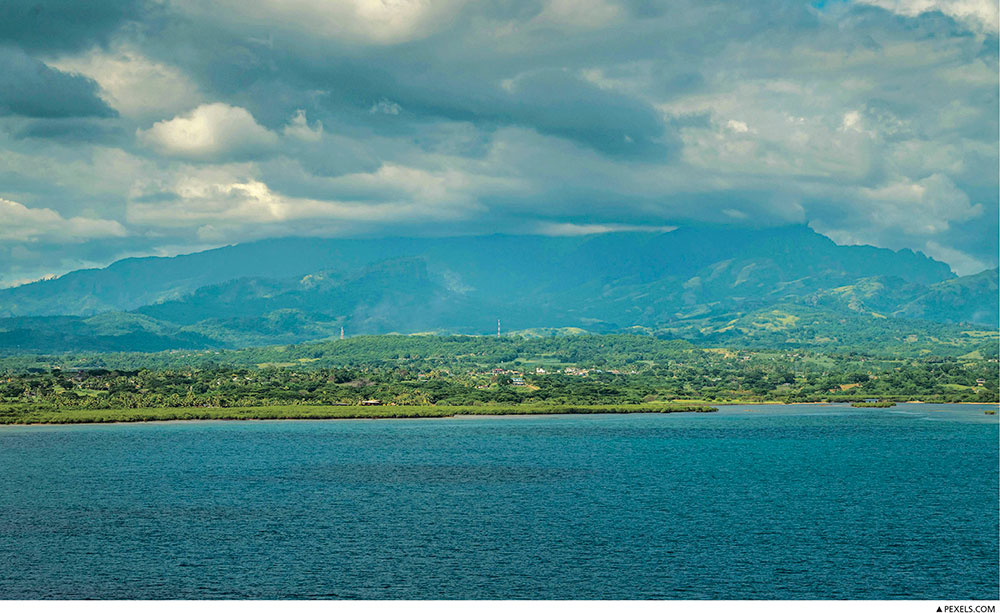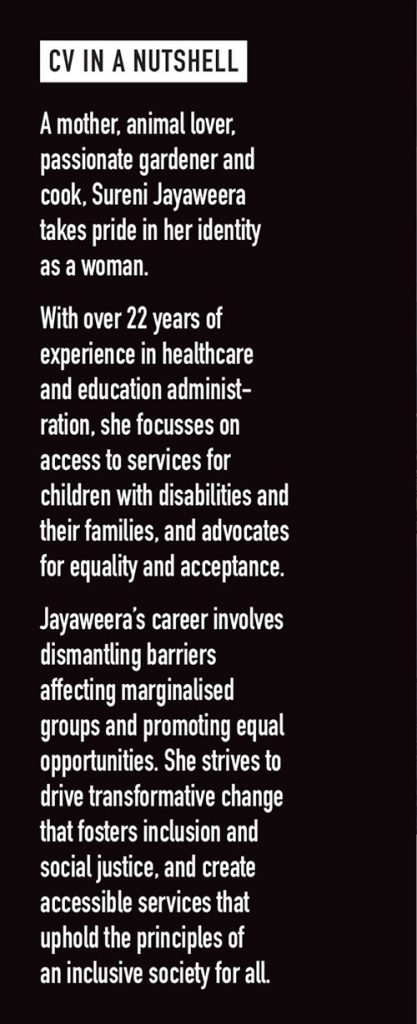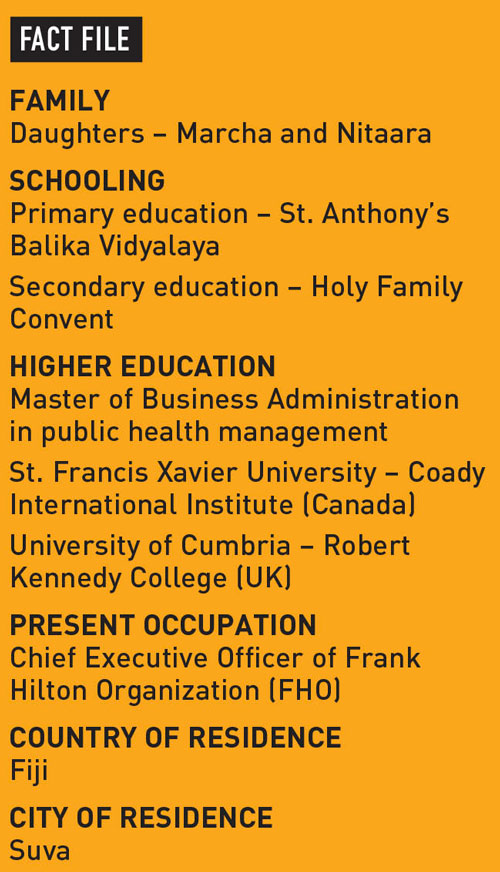Sureni Jayaweera
Advocating for inclusive change

Q: What inspired your move to Fiji – and how has your journey been so far?
A: My move from Sri Lanka to Fiji was intended as a short-term stay, driven by my husband’s career. However, it evolved into a life changing experience.
I was approached by what was then known as the Fiji Crippled Children’s Society to develop a strategic plan for schools under its management.
Drawing on my personal experience of raising a child with a disability and my background in child disability services, I drafted a plan that led to an early intervention framework supporting thousands of children across Fiji.
This work aligns with my goal of empowering parents and creating inclusive support structures. Despite challenges like skill shortages and cultural barriers, the journey has been transformative; it has enabled me to make meaningful contributions to the community I now call ‘home.’
Q: Can you tell us the challenges and rewarding moments you’ve experienced as CEO of Frank Hilton Organization (FHO)?
A: I take immense pride in witnessing my team’s dedication and impact. Despite being new to the field, they transform lives by instilling confidence in parents and altering children’s developmental trajectories.
However, despite supportive policies, significant implementation challenges remain.
A critical gap exists within the healthcare and education sectors, particularly in child health and disability in the early years. This hinders our ability to implement inclusive practices effectively.
To align with global standards for early detection and intervention, sustainable training programmes are essential. Currently, systemic approaches are lacking, leading to a reliance on short-term strategies that exacerbate brain drain.
Addressing these gaps by creating meaningful job opportunities is crucial for fostering lasting change and supporting children with disabilities effectively.
Q: How has your Sri Lankan heritage influenced your leadership style and approach in Fiji?
A: Growing up in a multiracial family and attending a small government school taught me to transcend societal distinctions like class, religion, race and ethnicity.
Instead, I focus on the human element and inherent qualities that unite us. My upbringing instilled values of respect, strength and pride without arrogance.
In Fiji, I’ve learned from the resilient and humble nature of its people, which has shaped my leadership style by emphasising empathy and community connection.
As a Sri Lankan woman leading an organisation in a foreign country, I remain humbled by my role rather than defined by it. I see myself as part of a team dedicated to supporting parents and ensuring children’s access to basic rights.
This allows me to connect with people from all backgrounds with respect and foster an environment where everyone feels valued.
Q: What is the significance of advocacy in disability support – and how do you feel about recently winning an Advocacy Achievement Award in recognition of your contributions?
A: Advocacy profoundly impacts children with disabilities by securing their rights and access to essential services. It not only heightens awareness but also bring about change by dismantling barriers, empowering communities and fostering inclusivity.
Winning the award was deeply humbling as it acknowledged my commitment to our work at Frank Hilton Organization where we support thousands of children across Fiji.
This recognition highlights the power of perseverance in advocacy even in challenging environments; it is a reminder that it’s our shared responsibility to champion the rights of children with disabilities and their families.
Q: Given your experience in Fiji, how do you perceive the current state of disability support and advocacy here in Sri Lanka?
A: Since leaving Sri Lanka 14 years ago, I have observed significant advancements in its disability support services. My foundational experience at the Chitra Lane Children’s Resource Centre under the guidance of pioneers like Delysia Gunewardene provided valuable insights into early intervention.
At the time, services were primarily charity based and inclusive education was emerging. Today, Sri Lanka has expanded its services considerably, which is encouraging given the size of the population and prevalence of disabilities.
In the context of these services however, I remain concerned about the standards that are maintained and regulated. More data on children with disabilities is also needed to guide a cohesive and community based approach for support.
Additionally, teacher training in special education strategies are unclear, and efforts to improve physical accessibility in schools and public spaces are lacking.
In comparison to Fiji, where resources are more limited but progress has been made through collaborative efforts between NGOs and government entities, Sri Lanka has greater potential due to its larger pool of expertise.
Despite the challenges, Sri Lanka’s capacity for improvement can be significant if it leverages local expertise effectively through coordinated initiatives across sectors.



